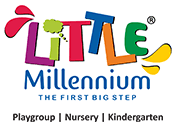
Teaching The ‘Untaught’ At School
Schools build a child’s daily routine around a set curriculum.
The teacher facilitates the same and the child begins to learn.
Typically, a standardised method of ‘testing the taught’ in our schools is through periodical tests, examinations, projects etc., the resultant of which is a series of grades or marks in the child’s Report Card, isn’t it?
We teach the child some alphabets or numbers and check their learnings through some tests or assessments or activities.
We teach children some new vocabulary or tables or multiplication and check their understanding through some more Monday morning recap tests or Activities.
And so it goes on.
The child is learning, showing progress in his / her alphabetic and numerical literacy and we feel pretty happy about it.
Then why do concerns like these, surface from time to time in every Parent Teacher Meet:
- My child has started lying, why is that so?
- My child is sometimes whining and sometimes obstinate. Why is that so?
- My child does not share his things, why is that so?
- My child refuses to listen to me, what should I do?
- My child does not eat what he / she should be eating? Why is that so?
- My child is refusing to go to school. Why is that happening?
- My child never sits still. What do I do?
All these and many more.
Why do all adult guardians face these issues?
If the primary concern of the child’s education is to know some rhymes, learn the alphabets, the numbers and study the subjects, then the schools are addressing this concern, isn’t it?
If that is the case, then it follows that the issues / concerns listed above – are actually concerning the untaught!
Smiling, laughter, sharing, jumping, hugging, asking a zillion questions – are topics which are actually untaught. Yet every child needs to learn these.
How do they learn these and where do they learn these topics?
We monitor the subject literacy progress of our child very diligently but how many of us realise that the channel for equipping our child with literacy is actually through the untaught topics?
How many of us ask our child / school / or teacher the following:
How many times did my child smile today?
How many times did my child hug a friend today?
How often does my child laugh in class?
Was my child introduced to all teachers in the school?
Did my child pick up a lost yet very attractive pencil in class and put it in the Lost and Found Box?
Does my child try to lie?
Did the school Principal meet my child today?
Did my child do anything ‘different’ today?
Is my child able to make a ‘happy’ face?
Did he/ she solve any new puzzles in the Activity corner today?
What did my child doodle today?
Did my child cook up a new song or story today?
How many times did my child jump in class today?
Did my child yawn in class today?
Did my child dance in school today?
Did my child take the lead in story yoga today?
We spend so much energy in monitoring subject progress without realising that the tools for subject literacy are – sharing, smiling, listening, laughing, speaking like a chatterbox, running, jumping and voicing a thousand questions, not related to subjects taught in the class room at all!
Such vital skills are truly the teaching aids used for subject/ concept literacy.
If the parent will pay more attention to this, the teacher will pay a lot more attention to this. And energy flows where the attention goes.
Preschool is the foundation period for such skills. This is the only period where the untaught has a huge role to play in building the foundation for the taught (eventually the subjects that the child will study in formal school).
It’s time to divide the focus and pay equal attention to these foundation skills.
Gradually and surely, it is through the untaught, that children will build a strong and unique character of their own.
We will discuss this in detail in subsequent articles.
Meanwhile, it would be interesting to know what the guardians of the young souls feel about the ‘untaught’.
Do share your comments in the comment box below and let’s get a conversation going.
